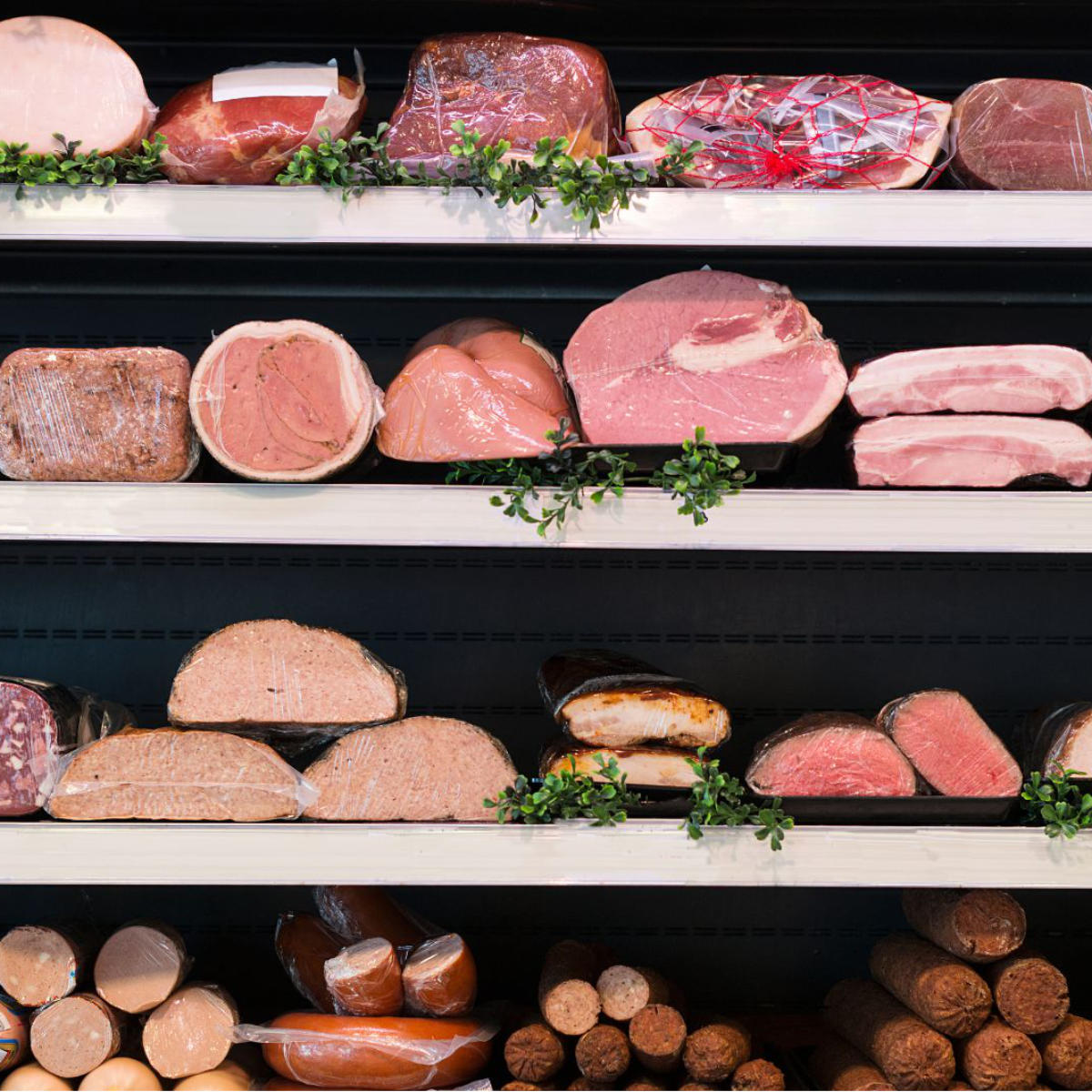Reading time: 5 minutes
Across Latin America, younger generations are changing the way they eat, driven by real-time access to information, increased awareness of nutrition and a growing focus on sustainability and animal welfare. They are more mindful of what goes on their plates and what it means for their health and the planet.
Generation Z (born between 1997 and 2012) is leading this shift
Despite having lower disposable income due to limited work experience and being early in their careers, Generation Z places strong emphasis on fitness, skin health, and overall energy. Millennials (born between 1981 and 1996), with comparatively higher and growing incomes, are also health-focused but tend to prioritize long-term wellness, including heart, immune, and brain health, while maintaining active lifestyles.
These evolving priorities are particularly evident in their attitudes toward meat consumption and shopping behavior. They are moving away from traditional choices and favoring alternatives that align with their values. Freshness and locally sourced products are top priorities, and digital platforms increasingly dominate how they discover and purchase food.
Young people in Colombia and Brazil are driving a shift toward chicken consumption
The new health-driven consumption patterns among Generation Z and Millennial consumers are accelerating a significant shift in protein preferences across Latin America, with Colombia and Brazil emerging as key markets in what can be described as a chicken revolution.
According to data from the Food and Agriculture Organization (FAO) and The Organization for Economic Co-Operation and Development (OECD), compiled by Emergent Cold LatAm, chicken has become a staple in the daily diets of younger consumers in both countries, due to its affordability, versatility, and longer shelf life, particularly in its frozen formats.
This trend is further supported by recent findings from Austria-based feed additive company Delacon. In a survey of 270 Colombian consumers aged 24 to 39, respondents expressed clear preferences for chicken products, highlighting factors such as nutrition and ethical sourcing as their top priorities.
More than 60 % of them said they try to actively avoid processed products. Over half (55%) described themselves as highly cautious about what they consume. When it comes to shopping for food, the majority gravitate toward locally-sourced options — with 74 % citing “local,” 62 % saying “fresh,” 59 % choosing “natural,” and 56 % highlighting “healthy” as key attributes. When purchasing chicken meat, freshness and health benefits top the list of priorities and they expressed strong concern for animal welfare and preferred chickens raised on natural feed. Their leading worries include the presence of hormones, perceived unhealthiness, and poor treatment of animals.
The concept of “natural feed” resonated strongly: 40% of participants said it made them think of “organic” or “natural” products, while 20% associated it with a lack of chemicals or additives, and 12% linked it to being healthier for consumers.
When asked about the responsible use of antibiotics, nearly one-third (32 %) said it should mean they’re only used when necessary, a view most commonly held by those aged 27 to 29. Additionally, more than 40% of participants associated the term “no growth-promoting antibiotics” with a natural growth rate, while others connected it with being more “natural” (15%) or free of chemicals (10%).
In neighboring Brazil, similar attitudes emerged :
The survey found that nearly 80% of Millennials scrutinize labels when buying chicken, and those who do are especially attentive to quality and sourcing. Around 40% said that they are willing to pay more for food that reflects their values.
Brazilian Millennials also place high importance on sustainability and animal welfare. Eight in 10 cited “good animal welfare practices,” “raised in a sustainable way,” “reduced environmental impact,” and “no antibiotics ever” as key attributes when selecting poultry or other animal proteins.
As younger generations in both countries gain more purchasing power, their food choices are sending a clear message: ethics and health matter just as much as taste.
Young Argentines and the future of beef: Values, habits and shifting tastes
As Argentina’s iconic beef industry looks towards its future, younger generations are emerging as a key demographic, as one that both values tradition and demands change.
According to a recent study by the Instituto de Promoción de la Carne Vacuna Argentina (IPCVA), Argentine millennials hold a generally favorable view of the industry, with 32% describing themselves as "enthusiastic" about Argentine beef. Another 38.5% were neutral, while 29.5% expressed criticism.
The results revealed some key points when considering sales to this audience: they prefer food products that demonstrate transparency, sustainability and social commitment, due to their main concerns related to health, animal welfare, the environment and social influence.
To better understand this market, the researchers identified three main characteristics of Millennials: as typical digital natives, they are hyperconnected, are impatient, and they are prone to short attention spans.
Despite these characteristics, the data reveals a strong cultural attachment to food, especially in its more artisanal or gourmet forms and many Millennials expressed a particular passion for authentic cooking and beef grilling experiences, often dedicating more time to a traditional barbecue (or asado, in Spanish) at home.
For Argentina’s beef industry, the message is clear: younger consumers are not abandoning meat, but winning their loyalty will require clear communication of values, ethical practices, and a continued emphasis on quality and culture.
Chile highlights shifting meat consumption habits among young shoppers
In Chile, evolving consumer habits among millennials and Generation Z are also reshaping the food retail landscape, especially when it comes to meat purchases.
A recent study by global consultancy firm, Deloitte, reveals how these younger generations are not only changing what they eat, but also how they shop. The report, which closely examined digital purchasing behaviors, found that young Chileans increasingly favor online platforms for meat purchases. Supermarket websites and apps, along with WhatsApp and social media channels used by small and medium-sized businesses, have become go-to options for many of them.
The study also points to a noticeable shift in spending patterns. Generation Z consumers allocate just 18 % of their food budget to traditional meat products, compared to the national average of 21 %. At the same time, they show a markedly higher interest in plant-based alternatives, with 38 % willing to pay more for meat substitutes, compared to just 22 % of the general population. This growing openness to plant-based options underscores a broader generational trend where convenience, ethics, and sustainability increasingly shape food choices in Chile’s evolving consumer landscape.
Meat and poultry dominate food spending in national households, consuming 20 % of household food budgets. Both items also remain the most frequently purchased item through digital platforms in Chile, particularly via supermarket apps and social media interactions with suppliers.
As online habits and food values shift, Chile is emerging as a clear example of how younger generations are steering the future of food, leaning into plant-based options and digital-first purchasing.
Innovation in Latin America’s meat industry driven by young consumers
As Latin America’s young consumers reshape expectations around food, the region’s meat industry faces both a challenge and an opportunity. Evolving preferences, values, and shopping habits—driven by concerns over health and nutrition—are redefining how meat is perceived and purchased.
This article has highlighted how Millennials and Gen Z in Colombia and Brazil are prioritizing freshness, nutrition, and environmental impact in their choices. In Argentina, younger generations remain loyal to their country's centuries-old beef culture, but are increasingly drawn to brands that demonstrate social responsibility and ethical practices. Meanwhile, Chilean youth are spending less on traditional meat and are turning to digital platforms to make their purchases.
These diverse trends underscore a broader regional shift: Latin America’s younger generations are not abandoning meat, but they are demanding that it evolve. In response, companies are listening and are innovating with new products, sustainable practices and greater transparency to meet the expectations of a rising consumer base.
By embracing this shift, the Latin American meat industry has the potential to lead globally, by nourishing future generations with products that are ethically produced, environmentally responsible and aligned with modern values.
Sources
Delacon. Brazilian Millenials – High-level food consciousness [PDF]. April 2020. https://www.delacon.com/fileadmin/media/download/Press/PR_Brazilian_Millennials_-_High-level_food_consciousness.pdf
Deloitte. Preferencias y Tendencias del Consumo de Alimentos en Chile [PDF]. November 2021. https://aproval.cl/manejador/resources/estudio-preferencias-tendencias-consumo.pdf
Doughman, Elizabeth. Millennials in Brazil value quality and source of their food. WATT Poultry. 7 April 2020. https://www.wattagnet.com/poultry-future/article/15530733/millennials-in-brazil-value-quality-source-of-their-food-wattagnet
Innova Market Insights. Consumer Trends in Latin America: Explore how generational differences are shaping consumer preferences in the food and beverage industry in Latin America” https://www.innovamarketinsights.com/trends/consumer-trends-in-latin-america/
Kinsley, Natalie. What matters to millennials when buying chicken. Poultry World. 8 April 2021. https://www.poultryworld.net/poultry/colombia-what-matters-to-millennials-when-buying-chicken/
Rocha, Rafael. The Evolution of Meat Consumption in Latin America. Emergent Cold LatAm. 22 January 2025. https://emergentcoldlatam.com/en/trends/meat-consumption-in-latin-america/










